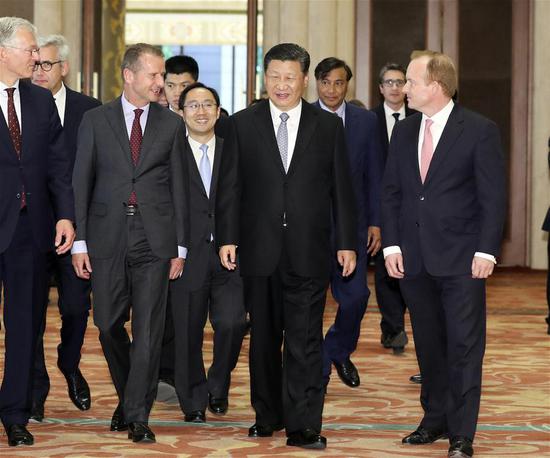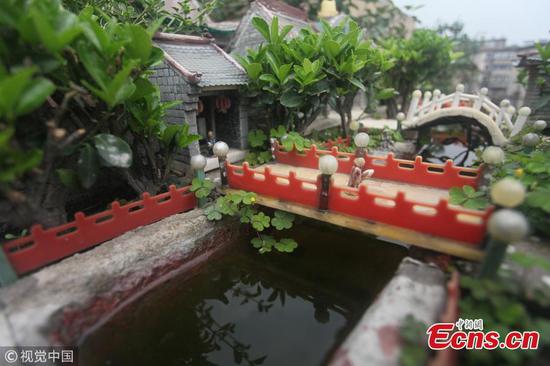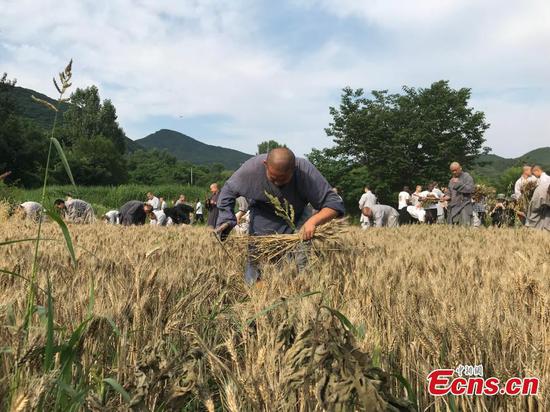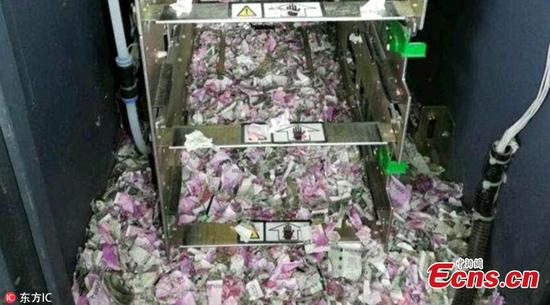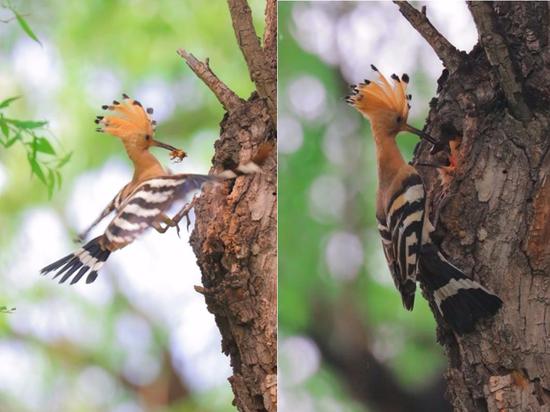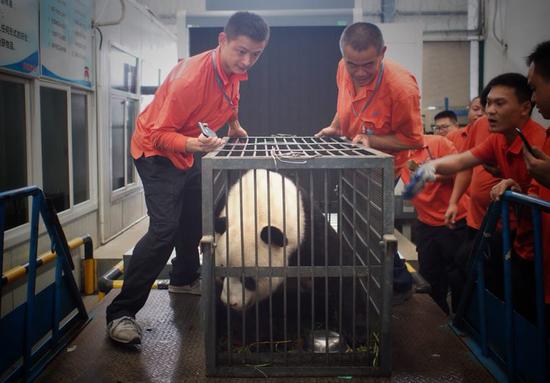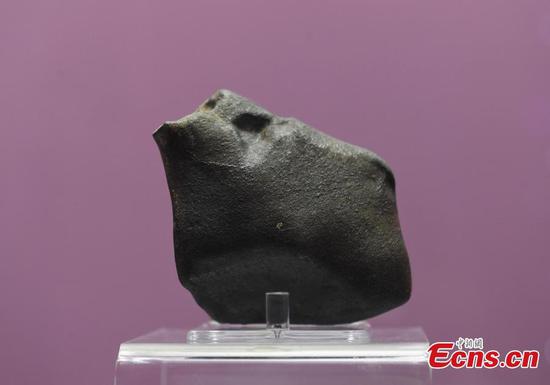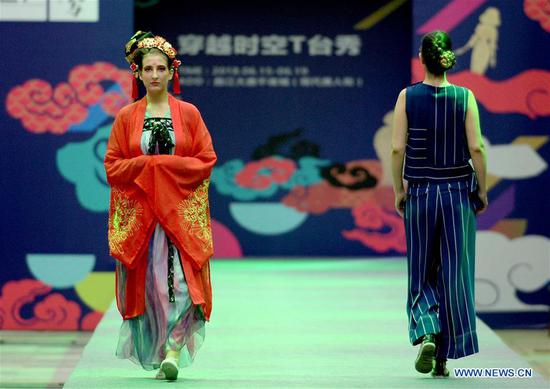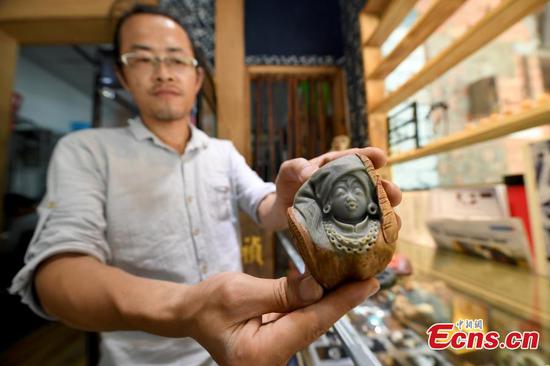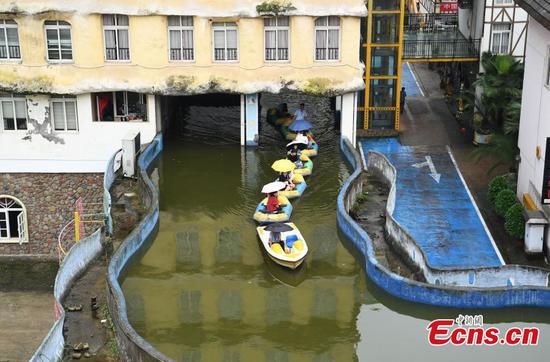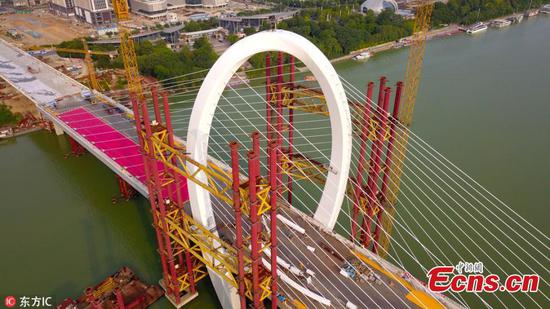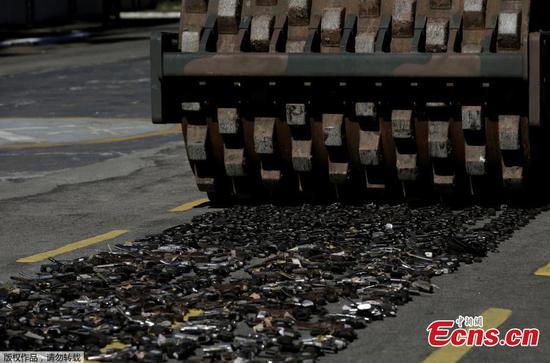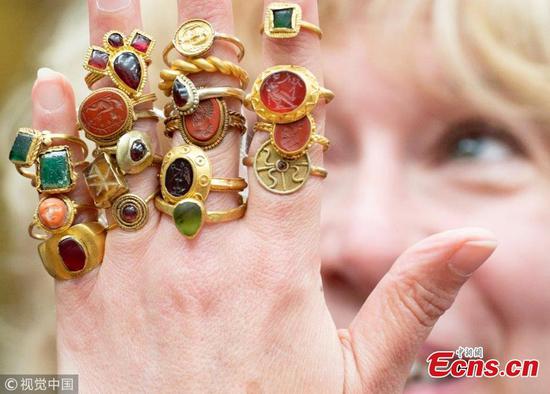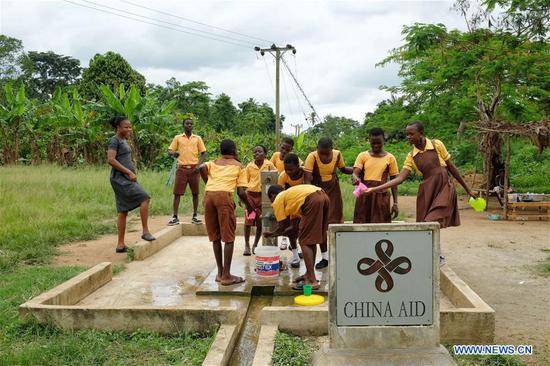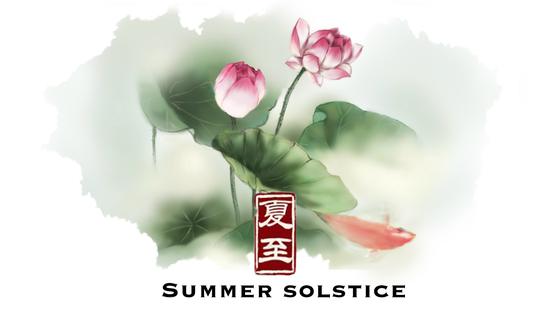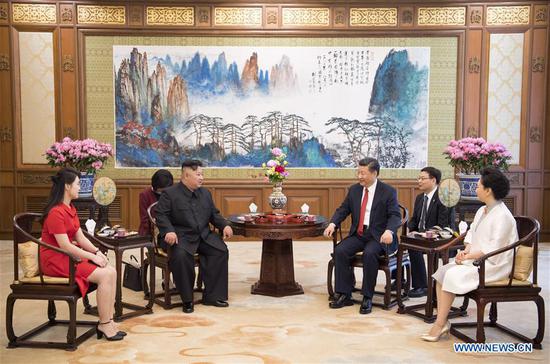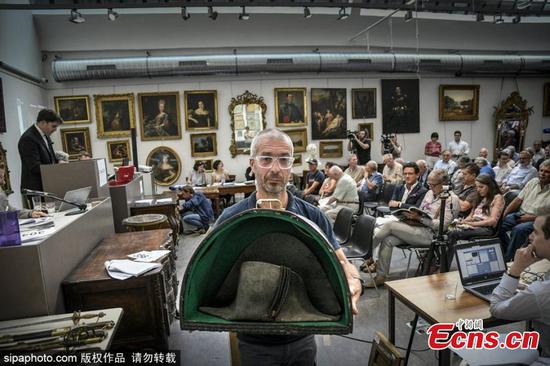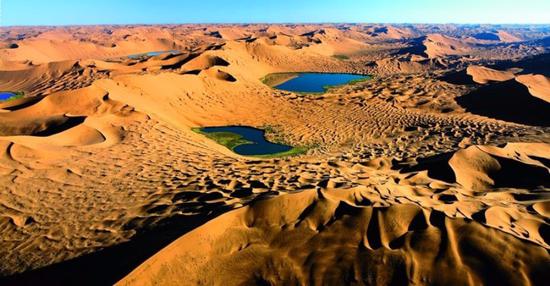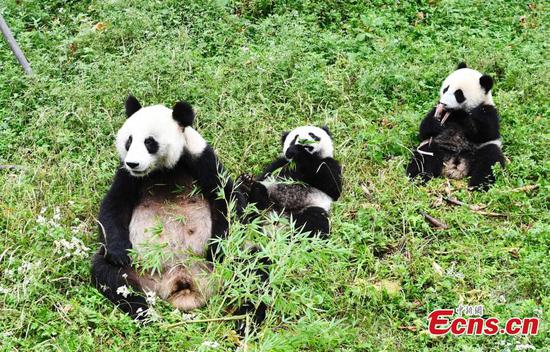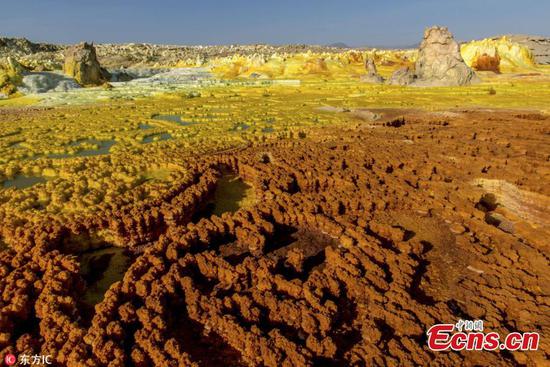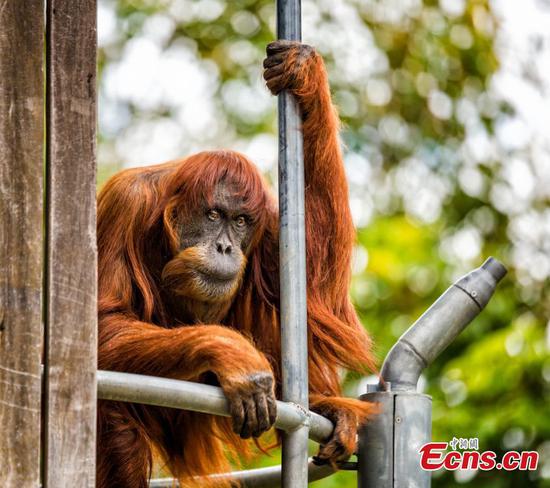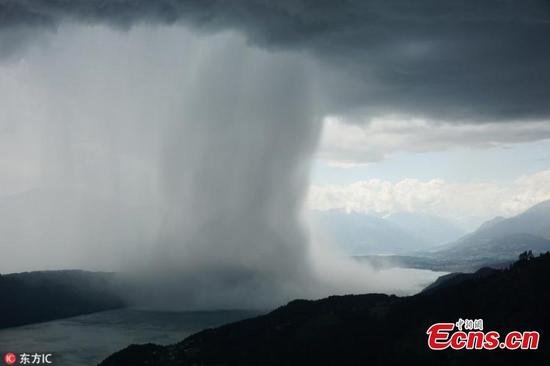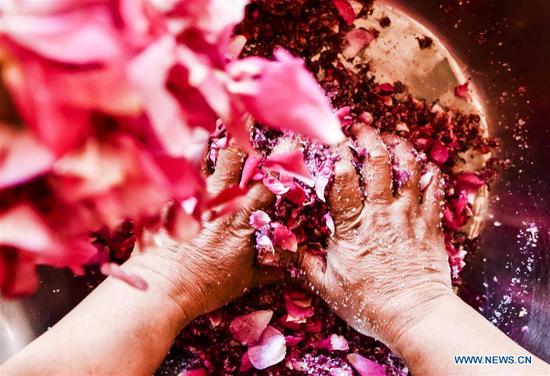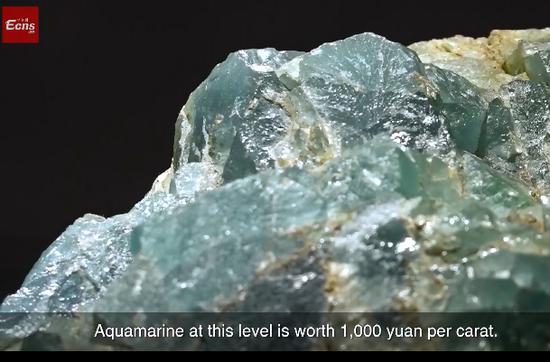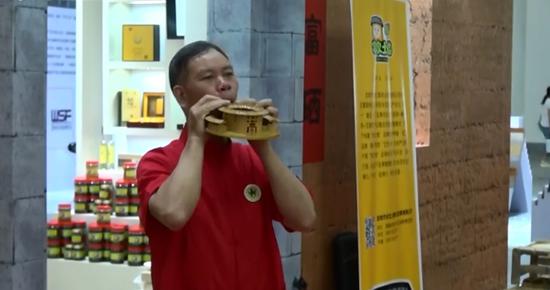Millet is no longer a popular staple food in China, but the drought-tolerant crop is playing a role in controlling desertification in the Inner Mongolia autonomous region.
Yaoba, an area plagued by drought in Alxa League, near the Tengger Desert, gets a little over 100 millimeters of rain a year. That left farmers reliant on water drawn from aquifers to irrigate the corn they grew on the area's 4,000 hectares of farmland, using a technique known as basin irrigation, in which fields are flooded.
"I basin irrigated my 100-hectare cornfield five times a year," 40-year-old farmer He Zirong said, adding that roughly 700 metric tons of water were required by each hectare of corn every year.
Recently, however, he has been convinced to switch to growing millet, a cereal never planted in the area before. The crop requires much less water but earns him more money.
Using drip irrigation, in which pipes feed water to rows of a crop, growing a hectare of millet requires an average of 350 tons of water a year, He said, with the amount falling to just 290 tons last year.
That meant he could make at least 3,000 yuan ($460) a hectare more growing millet than corn. He planted 20 hectares of millet in 2014, when he started growing the crop, but has increased the planting to 80 hectares this year in light of the benefits.
There were 470 hectares of millet planted in Yaoba last year thanks to encouragement from the Society of Entrepreneurs and Ecology, an NGO promoting remedies to desertification. The society started looking for an alternative to basin irrigation in 2009, eventually deciding to promote the growing of millet with drip irrigation.
At first, much of the millet was bought by SEE members, but as harvests grew, 49 members contributed funds to start a company, Beijing You Will See Eco-Agri Co, to market the crop. The company's product manager, Liu Xinying, said its profits are used to protect underground water sources in the area.
She said the company is diversifying its products, developing foods and snacks with millet as an ingredient, in the hope of increasing sales and making the water-saving project more sustainable. The products, including vinegar and biscuits, are also being promoted online.
Mu Zhengpeng, the company's general manager, said the society subsidized farmers up to 12 yuan a kilogram - more than the market price of millet - in the early days to promote planting. The subsidy was reduced to between 4 and 6 yuan a kilogram after harvests increased and will be cut to 5 yuan this year.
She said she was happy to see many farmers were now switching to drip irrigation in their cornfields after becoming familiar with the practice through the SEE's promotion of millet planting.
Farmer He said the area is visited almost every year by scientists, who come to measure the level of water in the aquifer.
"Last year, they told us the level has stopped going down," he said.










